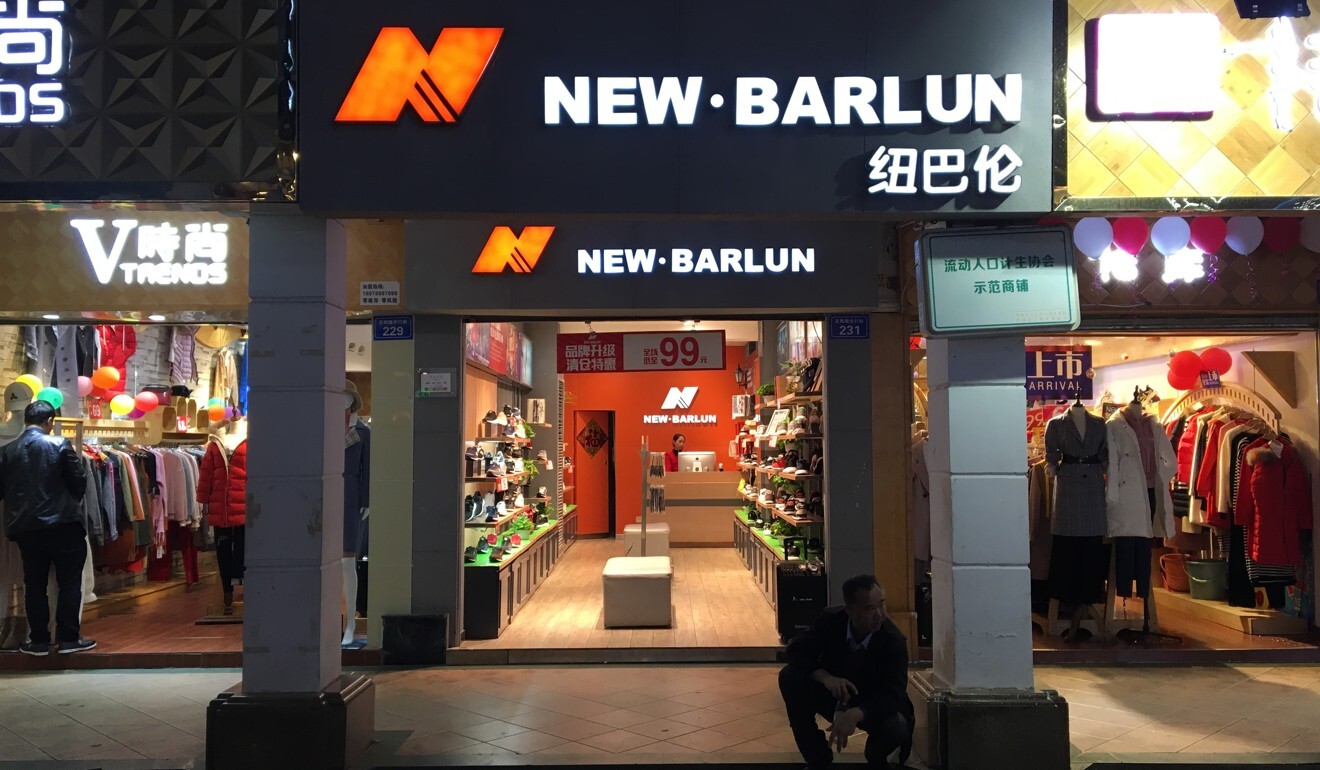
New Balance wins copyright case against Chinese firm over ‘N’ logo, wins US$1.54 million
- New Balance’s win comes after former NBA star Michael Jordan won a copyright infringement case, indicating China is serious on protecting intellectual property
- China is in the process of drafting an action plan on IP protection as required under the phase one trade deal with the US
New Balance has won a lawsuit filed against a Chinese company over its logo, indicating the country is taking protection of intellectual property more seriously.
The Shanghai Pudong People’s Court last week ordered New Barlun to pay damages of 10.8 million yuan (US$1.54 million) to the US sports footwear and apparel company. New Barlun was found guilty of unfairly using an “N” symbol that closely resembles New Balance’s signature logo, which the court said would mislead customers. New Balance filed the case in 2016, but it has been involved in other disputes with New Barlun for 16 years.
New Balance – one of the top 10 sportswear brands in China by market share – argued their own symbol was well known before New Barlun had applied for trademark registration, according to a statement by Rouse, a London-headquartered IP firm specialising in emerging markets. Chinese law firm Lusheng, which represented New Balance, is part of Rouse’s network, it said.
“The court has fairly enforced the legitimate rights of New Balance and in doing so, protected consumers’ interests,” said Angela Shi, senior brand protection manager for New Balance.

Boston-based New Balance’s victory comes exactly two weeks after China’s highest court overruled two earlier lower court rulings in favour of former NBA star Michael Jordan in a copyright infringement case. It found Fujian-based Qiaodan Sports had illegally used Jordan’s name in Chinese, Qiao Dan.
According to a report by the OECD and the EU’s Intellectual Property Office last year, the global counterfeit trade in 2016 was worth US$509 billion or about 3.3 per cent of all worldwide trade, with “the majority” of fake goods originating in mainland China and Hong Kong. Footwear was the category with the largest share of customs seizures.
Meanwhile, global losses due to counterfeiting amounted to US$323 billion in 2017, according to Daxue Consulting who cited the 2018 Global Brand Counterfeiting Report.
International companies have previously lost trademark battles in China, with Apple forced to pay US$60 million in 2012 to a local company that had registered the iPad name after a court rejected the US firm’s right to the trademark.
In 2016, New Balance was ordered to pay damages 5 million yuan to another entity which owned the trademark Xin Bai Lun, a Chinese trademark for New Balance. New Balance brought the case to the Supreme Court for reexamination, the final result of which is pending.
China’s Supreme Court, however, ruled Qiaodan Sports’ logo of a silhouette of a basketball player – similar to the iconic “Jumpman” logo owned by Nike – did not violate Jordan’s portraiture rights, meaning the Chinese firm could continue to use it.
Since being founded in 2010, Qiaodan Sports had registered around 200 trademarks based on the six-time NBA champion.
The two cases seem to show China honouring intellectual property (IP) rights, as outlined in the phase one trade deal signed with the US in January. China is in the process of drafting an action plan on IP protection as required under the deal, which is expected to address a number of US concerns that include trademarks and enforcement against pirated and counterfeit goods.
China sports firm illegally used Michael Jordan’s name but did not violate image rights, top court rules
“Copycats have been the bane of international brands in China for years. The court has now made it clear freeriding will no longer be tolerated,” said Douglas Clark, global head of dispute resolution at Rouse.
“[The New Balance] ruling brings confidence to every international IP rights holder seeking to operate in China. The outcome is the right one for both New Balance and for the protecting of IP rights in China more widely,” he added.
This is not New Balance’s first trademark victory in China. In 2017 a Chinese court in the eastern city of Suzhou ordered three defendants to pay New Balance US$1.5 million in damages for copying its logo, and ordered them to stop producing or selling shoes with variations of the logo.
“This judgment has furthered our confidence in the evolution of China’s judicial regime. As always, New Balance will not hesitate to take action to protect our IP rights and consumers’ rights in China and across the world,” said Dan McKinnon, senior counsel, IP and global brand protection for New Balance.

